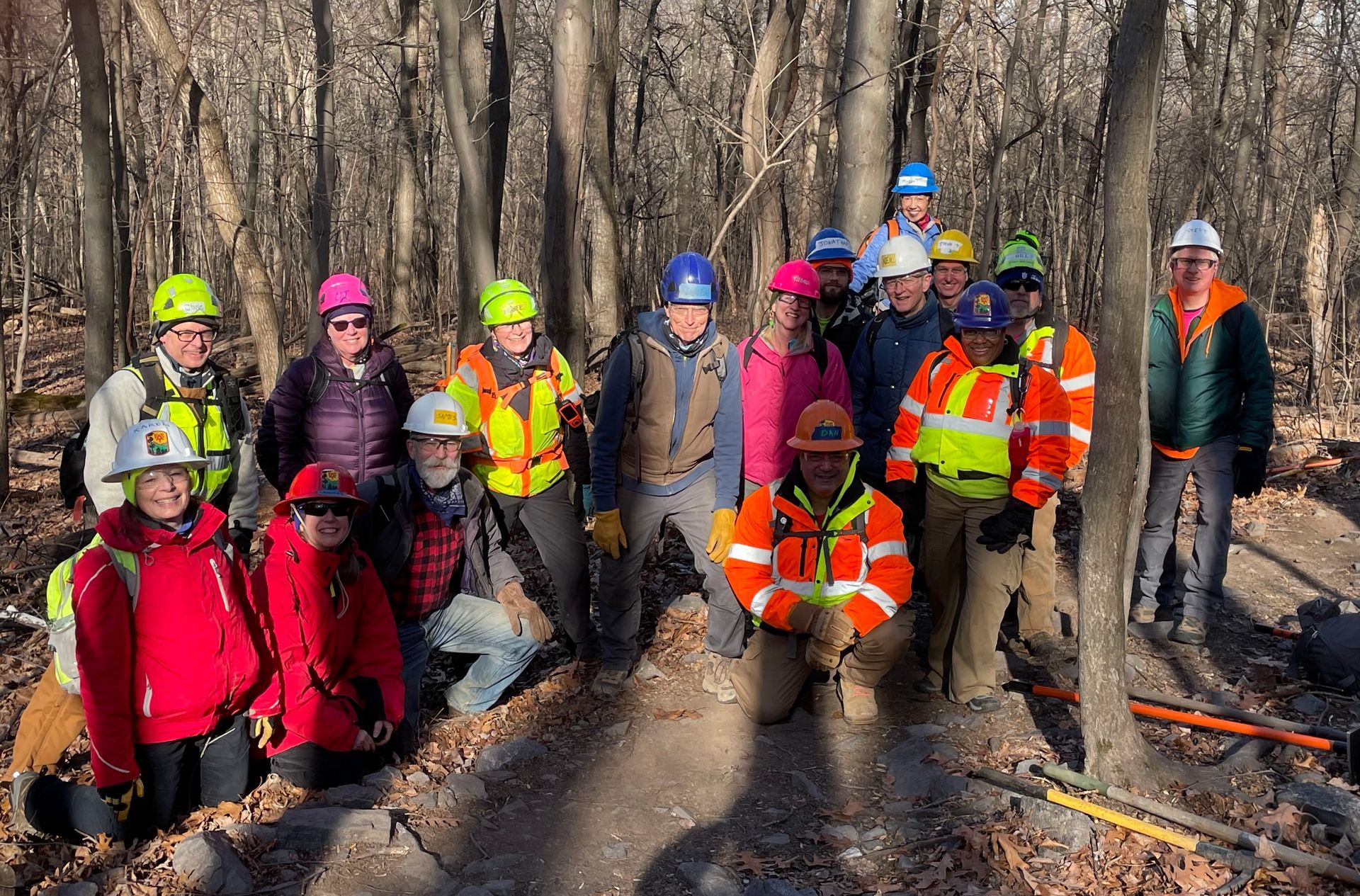Spring is almost here and if you’re anything like us, you’re itching to get outside. Have you thought about embarking on a day hike, but you’re not sure where to start? Day hiking is accessible, fun, and can be a rewarding experience, giving you the opportunity to enjoy the beauty of nature and revive your spirit.
Regardless of your skill level, planning is crucial to ensure a safe and enjoyable hike. In this guide, we'll provide you with some essential tips for planning your hike and discuss the ten hiking essentials that you should always have with you.
Planning Your Day Hike
1. Choose the Right Trail:
Choose a trail that matches your fitness level, abilities, and experience. You can consider factors such as distance, elevation gain, terrain, and difficulty rating. You can check out online resources and hiking guidebooks to help you make an informed decision. You can also use apps, such as AllTrails, to see hikes near you.
2. Check the Weather:
Weather can significantly affect your hike, so it's important to check the forecast for the trail area and plan accordingly. Be prepared for sudden changes in weather, especially in mountainous areas.
3. Notify Someone:
Before you head out, let a friend or family member know about your hiking plans, including your intended route and estimated return time. In case of emergencies, this information can be crucial for search and rescue efforts.
4. Pack Light, but be Prepared:
Carry essential items while keeping your backpack lightweight. Pack snacks, water, a first aid kit, navigation tools (map, compass, or GPS device), sun protection (sunscreen, hat, sunglasses), and extra clothing layers for changing weather conditions.
5. Wear Appropriate Clothing and Footwear:
Dress in layers suitable for the weather and wear sturdy hiking boots or trail shoes with good traction. Avoid cotton clothing, as it retains moisture and can lead to discomfort or hypothermia. Stick to wicking fabrics, such as wool or polyester.
6. Start Early:
Begin your hike early in the day to allow ample time for exploration and to avoid hiking in the hottest part of the day. Starting early also reduces the risk of getting caught in inclement weather or darkness.
7. Stay Hydrated and Energized:
Bring an adequate supply of water and high-energy snacks to fuel your body throughout the hike. Hydration packs or water bottles with built-in filters are convenient options for staying hydrated on the trail.
8. Pace Yourself:
Maintain a steady pace that suits your fitness level, and take breaks as needed to rest and refuel. Listen to your body and be mindful of signs of fatigue or dehydration.
9. Leave No Trace:
Respect nature and minimize your impact on the environment by practicing Leave No Trace principles. Pack out all trash, stay on designated trails, and avoid disturbing wildlife.
10. Enjoy the Journey:
Take time to appreciate the natural beauty around you and immerse yourself in the sights and sounds of the wilderness. Remember to capture memories responsibly by taking photos without disturbing the environment.
The 10 Hiking Essentials
Navigation: Carry a map and compass, or a GPS device, to help you find your way on the trail.- Sun Protection: Protect yourself from the sun's harmful rays with sunscreen, sunglasses, and a wide-brimmed hat.
- Bug Spray: Don’t forget to bring bug spray! It protects you from insect bites, ensuring a more enjoyable and safer outdoor experience.
- Insulation: Pack extra clothing layers to stay warm in cooler temperatures or during unexpected weather changes.
- Illumination: Carry a headlamp or flashlight with extra batteries for visibility in low-light conditions or emergencies.
- First Aid Kit: Be prepared for minor injuries with a basic first aid kit containing bandages, antiseptic wipes, pain relievers, and other essentials. Pro-tip: Bring a multi-tool to be extra prepared. It ensures you're equipped to handle various unexpected situations or emergencies with ease and versatility.
- Nutrition: Bring high-energy snacks like trail mix, energy bars, or jerky to fuel your body during the hike.
- Hydration: Carry an ample supply of water or a water filtration system to stay hydrated throughout the day.
- Emergency bathroom bag: Carrying a pack out bag with toilet paper while hiking ensures you're prepared for any nature's call with comfort and hygiene. Check out this article about how to make packing out your TP less gross.
By following these planning tips and carrying the ten hiking essentials, you'll be well-prepared for a memorable and safe day hike. Remember to always prioritize safety, respect nature, and most importantly, enjoy the adventure!










